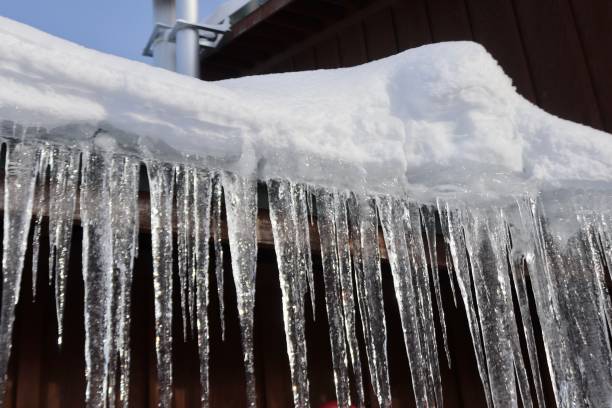How to Defend Plumbing System from Freezing: Key Advice
How to Defend Plumbing System from Freezing: Key Advice
Blog Article
The article author is making a few great observations related to How To Avoid Freezing Pipes as a whole in the article followed below.

Cold weather can damage your pipes, particularly by freezing pipelines. Below's exactly how to stop it from taking place and what to do if it does.
Introduction
As temperature levels drop, the danger of icy pipelines boosts, possibly bring about costly repair services and water damages. Understanding exactly how to avoid icy pipelines is essential for house owners in chilly environments.
Prevention Tips
Insulating vulnerable pipelines
Wrap pipes in insulation sleeves or use warmth tape to secure them from freezing temperatures. Concentrate on pipelines in unheated or external locations of the home.
Heating methods
Maintain indoor spaces properly warmed, particularly locations with plumbing. Open up closet doors to enable cozy air to circulate around pipes under sinks.
Just how to determine frozen pipelines
Look for decreased water circulation from taps, unusual smells or noises from pipes, and visible frost on subjected pipes.
Long-Term Solutions
Structural adjustments
Think about rerouting pipes away from exterior wall surfaces or unheated locations. Include added insulation to attics, basements, and crawl spaces.
Updating insulation
Purchase high-grade insulation for pipelines, attics, and wall surfaces. Appropriate insulation helps keep regular temperatures and minimizes the risk of frozen pipelines.
Protecting Outside Pipes
Yard hoses and outside taps
Disconnect and drain garden pipes prior to winter. Set up frost-proof faucets or cover exterior taps with shielded caps.
Understanding Frozen Pipes
What triggers pipelines to ice up?
Pipelines ice up when subjected to temperatures listed below 32 ° F (0 ° C) for extended durations. As water inside the pipes ices up, it expands, taxing the pipeline walls and possibly causing them to break.
Threats and damages
Icy pipelines can result in water supply interruptions, property damage, and costly repair services. Ruptured pipelines can flooding homes and create extensive structural damage.
Signs of Frozen Pipes
Identifying frozen pipes early can prevent them from bursting.
What to Do If Your Pipelines Freeze
Immediate activities to take
If you presume icy pipes, keep taps available to eliminate pressure as the ice melts. Utilize a hairdryer or towels soaked in hot water to thaw pipelines slowly.
Final thought
Preventing icy pipelines requires positive actions and quick reactions. By recognizing the reasons, signs, and preventive measures, home owners can protect their plumbing during cold weather.
Helpful Tips to Prevent Frozen Pipes this Winter
UNDERSTANDING THE BASICS: WHY PIPES FREEZE AND WHY IT’S A PROBLEM
Water freezing inside pipes is common during the winter months, but understanding why pipes freeze, and the potential problems it can cause is crucial in preventing such incidents. This section will delve into the basics of why pipes freeze and the associated problems that may arise.
THE SCIENCE BEHIND FROZEN PIPES
When water reaches freezing temperatures, it undergoes a physical transformation and solidifies into ice. This expansion of water as it freezes is the primary reason pipes can burst. As the water inside the pipe freezes, it expands, creating immense pressure on the walls. If the pressure becomes too great, the pipe can crack or rupture, leading to leaks and water damage.
FACTORS THAT CONTRIBUTE TO PIPE FREEZING
Low Temperatures: Extremely cold weather, especially below freezing, increases the risk of pipes freezing. Uninsulated or Poorly Insulated Pipes: Pipes located in unheated areas, such as basements, crawl spaces, or attics, are more prone to freezing. Insufficient insulation or lack of insulation altogether exacerbates the problem. Exterior Wall Exposure: Pipes running along exterior walls are susceptible to freezing as they encounter colder temperatures outside. Lack of Heating or Temperature Regulation: Inadequate heating or inconsistent temperature control in your home can contribute to frozen pipes. PROBLEMS CAUSED BY FROZEN PIPES
- Pipe Bursting: As mentioned earlier, the expansion of water as it freezes can cause pipes to burst, resulting in significant water damage.
- Water Damage: When pipes burst, it can lead to flooding and water damage to your property, including walls, ceilings, flooring, and personal belongings.
- Structural Damage: Prolonged exposure to water from burst pipes can compromise the structural integrity of your home, leading to costly repairs.
- Mold and Mildew Growth: Excess moisture from water damage can create a favorable environment for mold and mildew growth, posing health risks to occupants.
- Disrupted Water Supply: Frozen pipes can also result in a complete or partial loss of water supply until the issue is resolved.
WHY CERTAIN PIPES ARE MORE PRONE TO FREEZING
- Location: Pipes located in unheated or poorly insulated areas, such as basements, crawl spaces, attics, or exterior walls, are at higher risk of freezing.
- Exterior Pipes: Outdoor pipes, such as those used for irrigation or exposed plumbing, are particularly vulnerable to freezing as they are directly exposed to the elements.
- Supply Lines: Pipes that carry water from the main water supply into your home, including the main water line, are critical to protect as freezing in these lines can affect your entire plumbing system.
- Underground Pipes: Pipes buried underground, such as those connected to sprinkler systems or outdoor faucets, can be susceptible to freezing if not properly insulated.
https://busybusy.com/blog/helpful-tips-to-prevent-frozen-pipes-this-winter/

I am very enthusiastic about 6 Ways to Prevent Frozen Pipes and I am assuming you enjoyed the new post. Liked our blog entry? Please quickly share it. Let somebody else check it out. Thank you for being here. Kindly come visit our site back soon.
Website Report this page